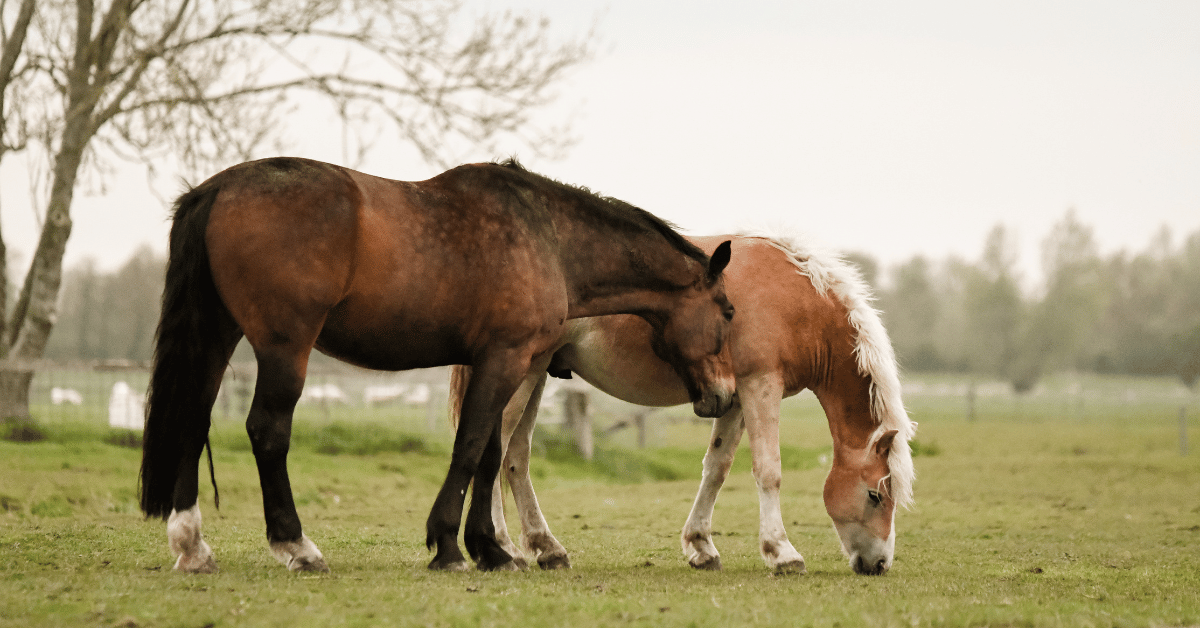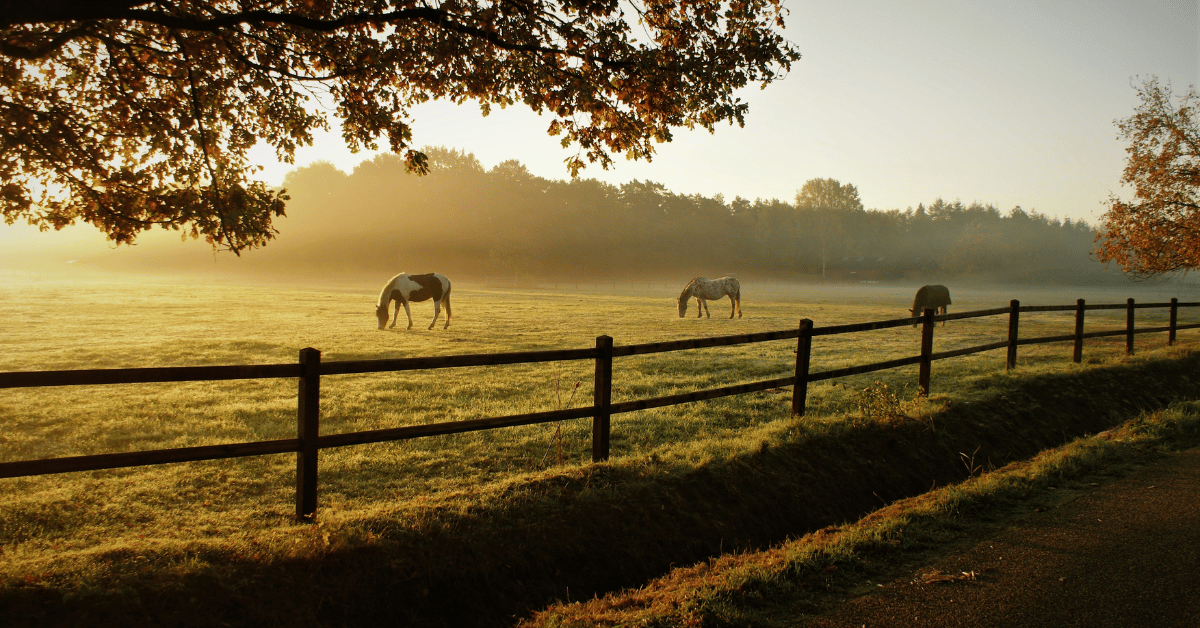Feeding tips for winter: Keep your horse at a healthy weight
Wild horses in nature follow a yearly cycle of gaining and losing weight. In spring and summer, they eat more than they need and build up reserves. In winter, high-energy food is less available, and they must rely on more fibrous, low-sugar plants. They burn more energy to stay warm and naturally lose some weight.
Weight
Feeding

27 September '25 • 3 min reading time
Our domesticated horses are far less influenced by these natural rhythms. While some ponies and draft breeds are still closer to the “wild” situation, warmblood sport horses rarely show the same seasonal weight fluctuation – even if kept outside year-round with unlimited grass and hay.
Maintaining weight
Owners generally prefer their horses to stay at a steady, healthy weight – not too fat in summer, not too thin in winter. This means adjusting care and feeding with the seasons.
Avoiding overweight in summer
During summer, horses on lush pasture can gain weight quickly. Horses in paddocks with only hay are less at risk, but large amounts of rich grass can easily lead to obesity. This makes summer a critical time to monitor condition.
Avoiding underweight in winter
A horse generates much of its body heat through fermentation of forage in the hindgut (caecum and colon). This process produces significant heat, which is why horses kept outside eat through their hay more quickly in cold weather. They adapt to lower temperatures with their winter coat and by increasing their basal metabolism. Only in genuinely cold conditions – frost, strong wind, or rain – does the energy demand rise significantly. Foals are less tolerant of cold, while yearlings usually manage down to –10 °C, as do adult horses. Older horses are more sensitive due to slower metabolism and sometimes less efficient chewing. Since long winter coats can hide weight loss, it’s best to check condition by feeling the ribs.
Breed influence
Whether a horse needs extra feed in winter also depends on breed. Ponies and drafts react differently than modern sport horses. Research shows that ponies often become overweight in winter if given the same extra feed that warmbloods require.
Housing influence
Management also plays a role. A horse that spends 12 hours a day in a stable with a rug on is not cold and doesn’t need extra feed. In fact, horses kept too warm may gain weight in winter, especially if training is reduced due to poor weather or unusable arenas.
Feeding strategy for winter
Horses not exposed to long periods of cold usually maintain weight well. If your horse is slightly overweight – as many leisure horses are – a lighter or no rug can help it lose some kilos more naturally than cutting forage, which is essential for gut health. If your horse is underweight, provide more hay or forage substitutes such as soaked grass pellets, alfalfa pulp, or beet pulp. These soaked options are especially helpful for older horses that chew less effectively. A (rain) rug can also support weight maintenance in cold, wet conditions. Adding fats, such as salmon oil, is another way to provide extra energy if your horse is losing too much weight in winter.
Sources
lexandra H.A. Dugdale, Gemma C. Curtis, Peter J. Cripps, Patricia A. Harris, Caroline McG. Argo, Effects of season and body condition on appetite, body mass and body composition in ad libitum fed pony mares. The Veterinary Journal, Volume 190, Issue 3, 2011, Pages 329-337, ISSN 1090-0233, https://www.sciencedirect.com/science/article/pii/S1090023310003837
Giannetto C, Aragona F, Fazio F, et al. Investigation of the impact of seasonal climate conditions on feed intake and body weight in horses. International Journal of Biometeorology. 2025 May;69(5):1101-1110. https://link.springer.com/article/10.1007/s00484-025-02881-z
Nadia F. Cymbaluk. Thermoregulation of horses in cold, winter weather: A review, Livestock Production Science, Volume 40, Issue 1, 1994, Pages 65-71, ISSN 0301-6226, https://www.sciencedirect.com/science/article/pii/0301622694902666


